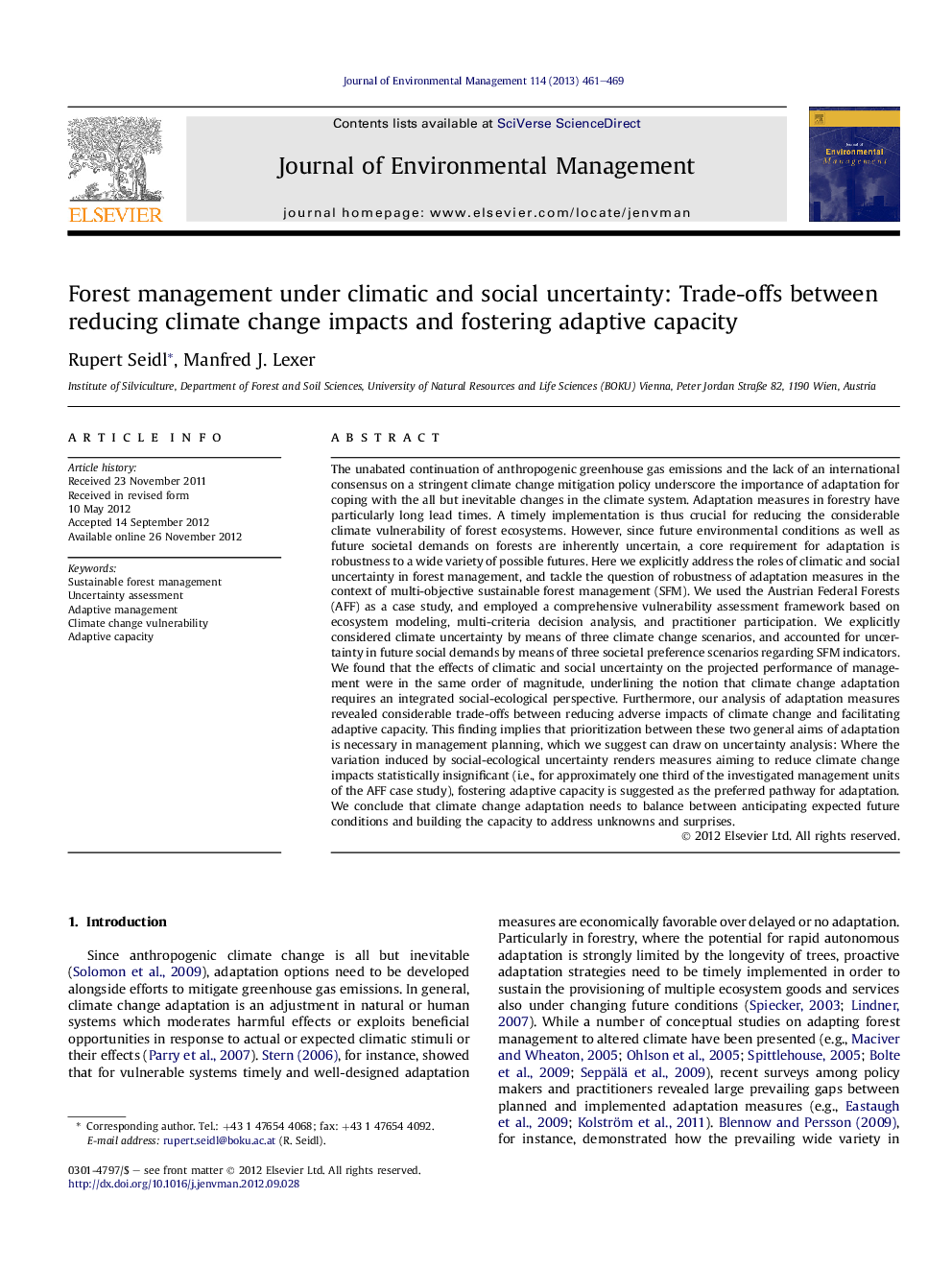| کد مقاله | کد نشریه | سال انتشار | مقاله انگلیسی | نسخه تمام متن |
|---|---|---|---|---|
| 1056621 | 1485298 | 2013 | 9 صفحه PDF | دانلود رایگان |

The unabated continuation of anthropogenic greenhouse gas emissions and the lack of an international consensus on a stringent climate change mitigation policy underscore the importance of adaptation for coping with the all but inevitable changes in the climate system. Adaptation measures in forestry have particularly long lead times. A timely implementation is thus crucial for reducing the considerable climate vulnerability of forest ecosystems. However, since future environmental conditions as well as future societal demands on forests are inherently uncertain, a core requirement for adaptation is robustness to a wide variety of possible futures. Here we explicitly address the roles of climatic and social uncertainty in forest management, and tackle the question of robustness of adaptation measures in the context of multi-objective sustainable forest management (SFM). We used the Austrian Federal Forests (AFF) as a case study, and employed a comprehensive vulnerability assessment framework based on ecosystem modeling, multi-criteria decision analysis, and practitioner participation. We explicitly considered climate uncertainty by means of three climate change scenarios, and accounted for uncertainty in future social demands by means of three societal preference scenarios regarding SFM indicators. We found that the effects of climatic and social uncertainty on the projected performance of management were in the same order of magnitude, underlining the notion that climate change adaptation requires an integrated social-ecological perspective. Furthermore, our analysis of adaptation measures revealed considerable trade-offs between reducing adverse impacts of climate change and facilitating adaptive capacity. This finding implies that prioritization between these two general aims of adaptation is necessary in management planning, which we suggest can draw on uncertainty analysis: Where the variation induced by social-ecological uncertainty renders measures aiming to reduce climate change impacts statistically insignificant (i.e., for approximately one third of the investigated management units of the AFF case study), fostering adaptive capacity is suggested as the preferred pathway for adaptation. We conclude that climate change adaptation needs to balance between anticipating expected future conditions and building the capacity to address unknowns and surprises.
► We address climatic and social uncertainty in climate change adaptation in forestry.
► Social uncertainty was found equally influential as climatic uncertainty.
► We also investigate the relationship between different goals of adaptation.
► Trade-offs exist between reducing climate impacts and fostering adaptive capacity.
► Uncertainty assessment can be used to balance these trade-offs in adaptation.
Journal: Journal of Environmental Management - Volume 114, 15 January 2013, Pages 461–469